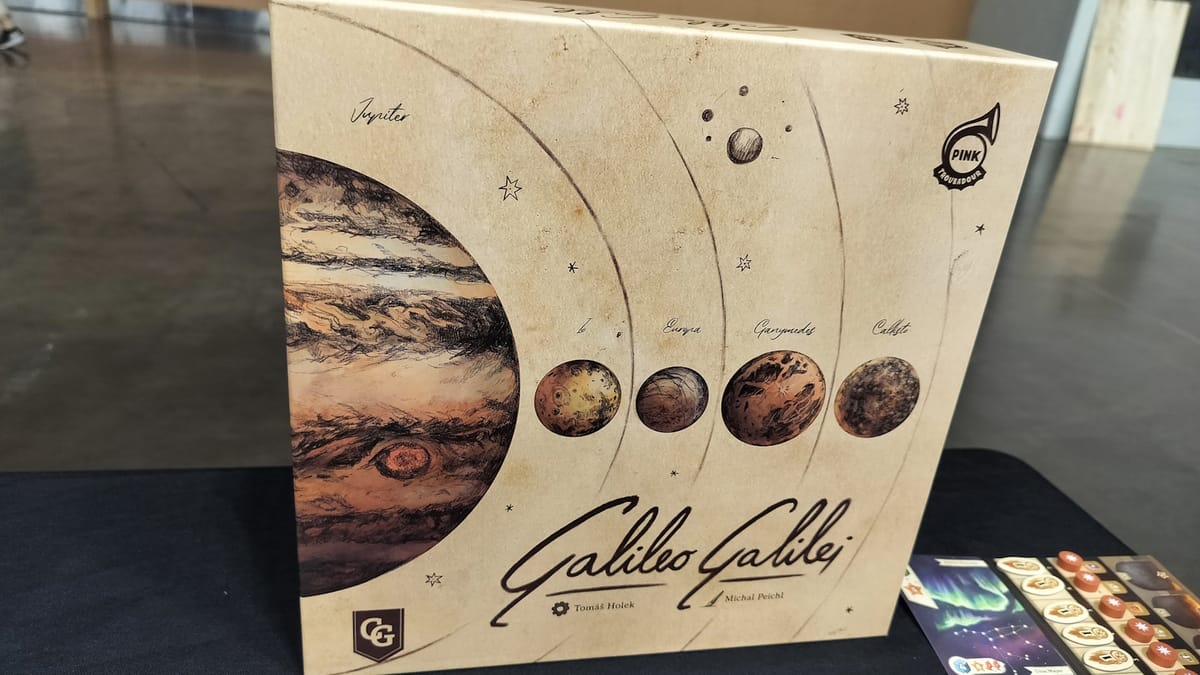
Galileo was one of the forerunners of modern astronomy. He made dozens of discoveries and inventions related to the science, as well as physics in general. His observations led him to firmly believe in Heliocentrism, that the Sun was the center of the solar system. This idea was radical for its time, and the Inquisition was soon putting pressure on him and his peers.
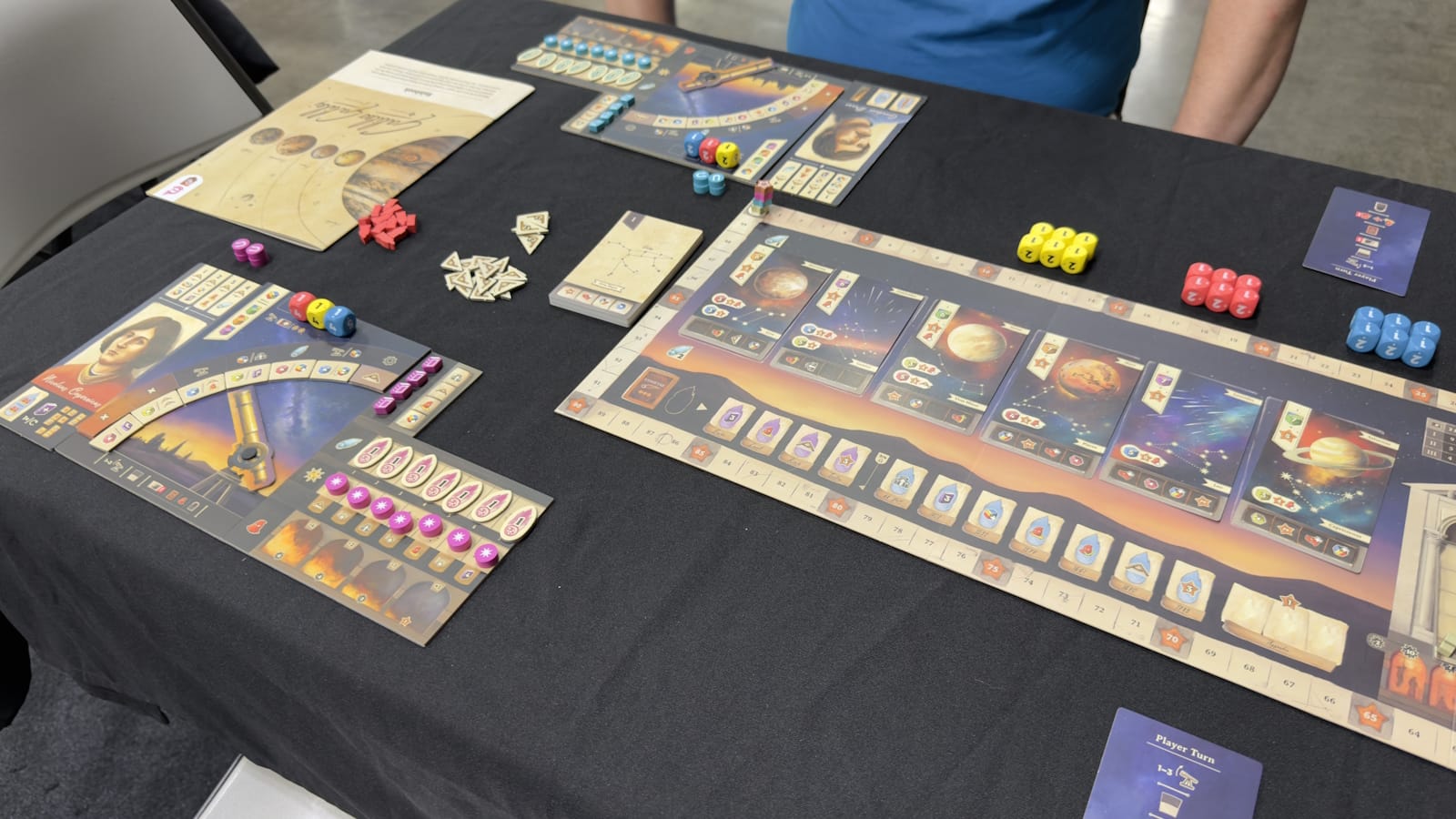
So, Capstone and designer Tomas Holek went forth to recreate this period of history with a board game: Galileo Galilei. Galileo Galilei sees 1-4 players taking turns choosing actions using a telescope. You get 2 actions a turn, one of which is on a shifting tile, and the other is set in stone. When you push your telescope as high as it can go, it resets to its lowest position and you get to upgrade one of the shifting tiles, building up your engine for the future.
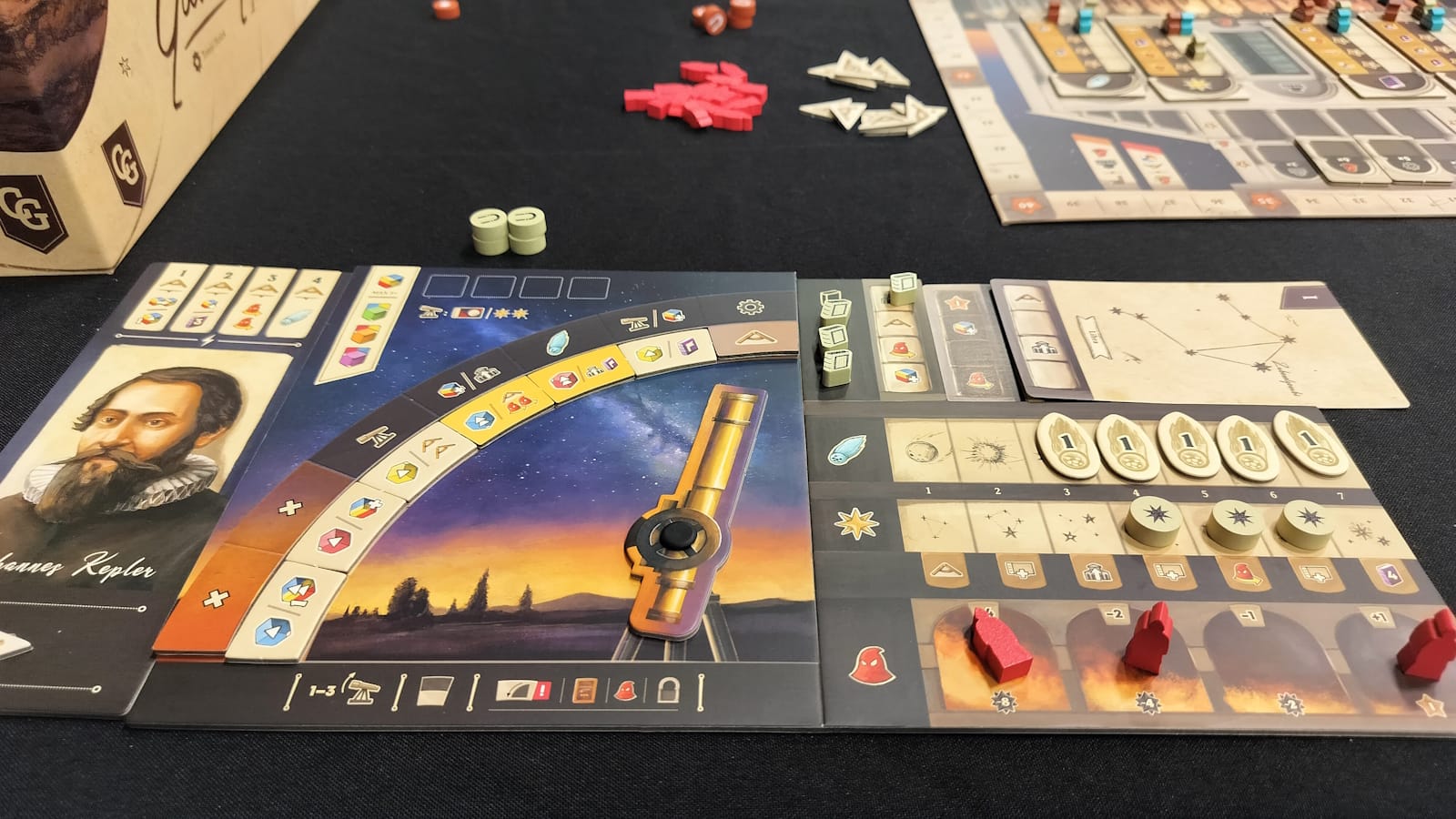
The other actions available generally revolve around dice, astronomical observations, and dealing with the inquisition, and various other scoring systems in the game. Dice are your main resource in the game. Each die represents scientific data, and comes in 3 colors: red, yellow and blue. Many actions will tick a die up by one or more, while making observations will spend those dice. Observing constellations will only spend one color of dice, while observing planets and moons will spend two different colors of dice, combining into a complementary color (red and yellow will make orange, for example).
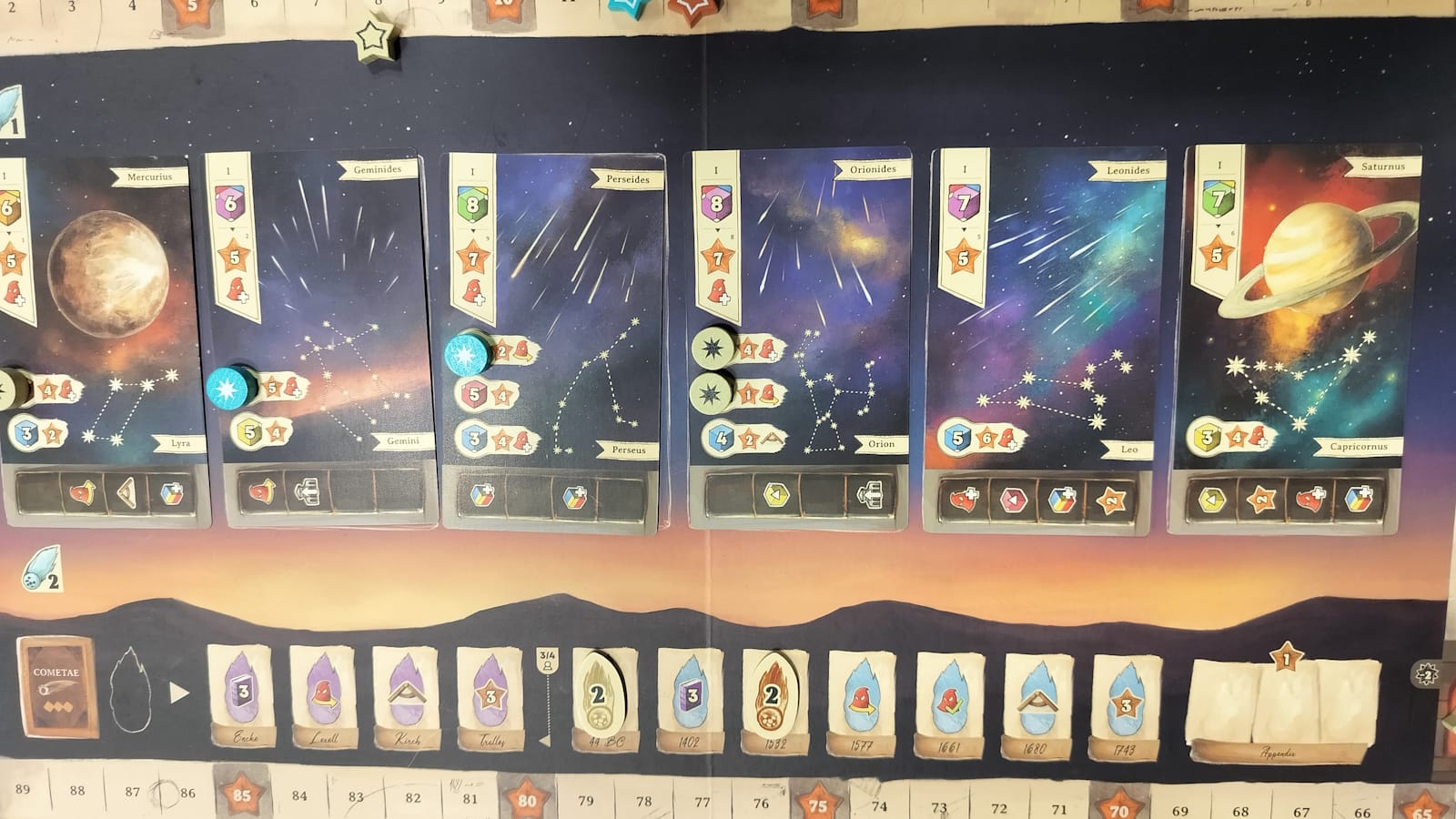
Each observation provides points and other bonuses, and observing planets adds additional slots to your library. The library, in turn, provides additional actions with four slots. Each slot has a book on it that moves up. Some actions will move the books by one step at a time, and those actions can be split amongst your library books. Other actions will send one book all the way to the end, granting every bonus it passes, which means the most efficient method can be to build a large library, then send books over in one go.
Comets are also in the skies. When observing a comet, you will reduce the cost of other observations. You get to benefit from this discount twice per comet, after which it provides an additional benefit by getting put along the bottom of the main board.
The last thing to deal with are the inquisitors. Inquisitors will start showing up on the bottom of your board as you take actions. Once you take on an inquisitor, you’re going to have to deal with them forever. Other actions will move them further right on your player board, though any time you move them, you will wind up dealing with the exact kind of trouble the inquisition usually brings: loss of reputation. However, as you move your inquisitors to the right, you will start convincing them of your arguments, which, once you have enough that believe in Heliocentrism, will start providing you a steady source of reputation and eventually points.
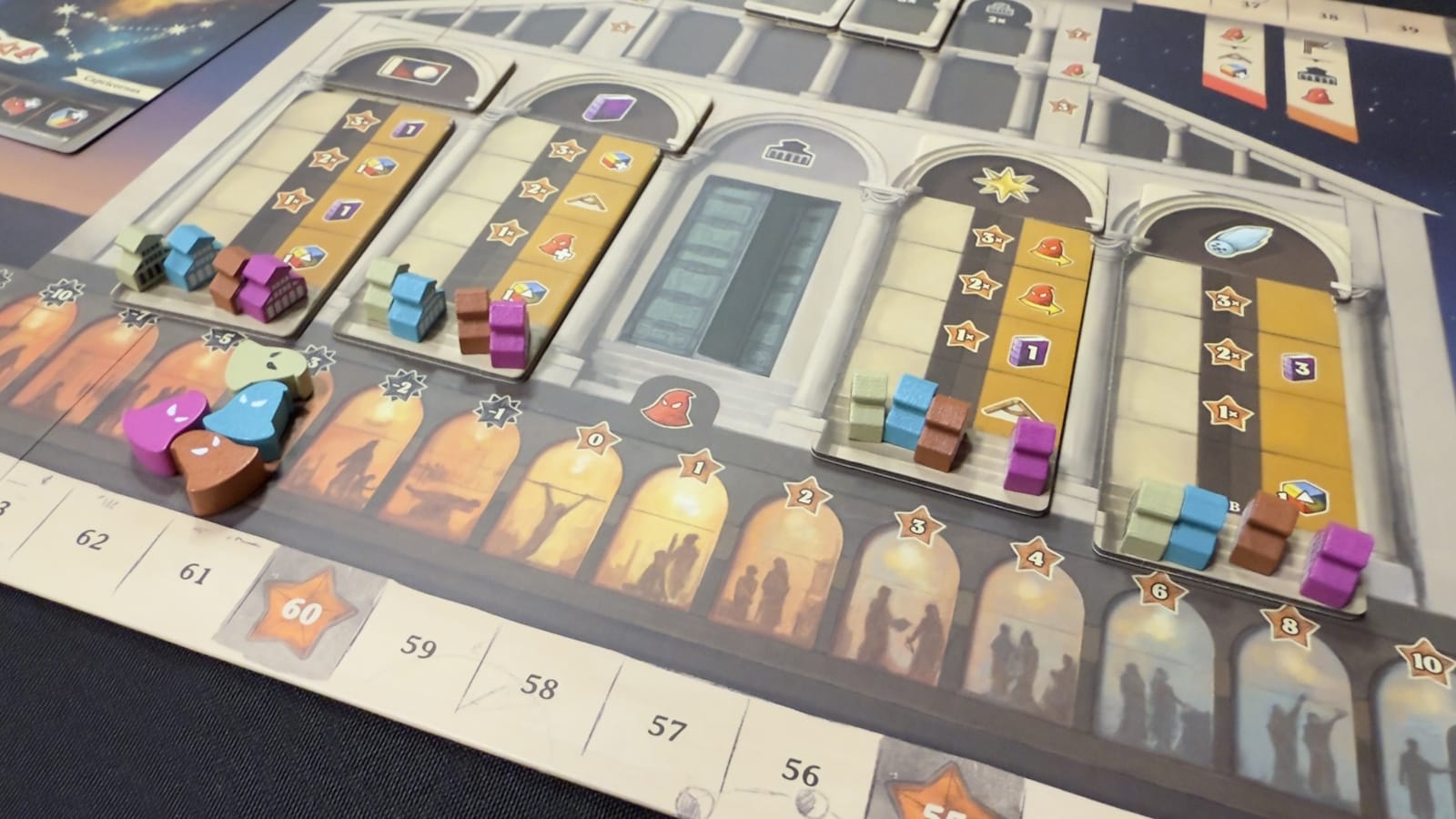
Universities round out the scoring systems. Each university action your take allows you to upgrade an end game scoring mechanic and gain a minor bonus. These scoring mechanics provide a multiplier to your library, comets, constellations, planets, or other options, as well as an achievement system offering additional points for the first to accomplish these objectives.
This complex scoring system means that every game offers a large number of paths to victory, from getting large numbers of inquisitors on your side to investing into universities, to rushing upgrades and making a lot of observations. Many actions combo into others, so clever action selection can result in delicious chains of actions, possibly deciding the game in a single action.
Galileo Galilei was definitely one of the high points of Origins, with its great table presence and rock solid theming. Capstone is likely very happy with its showing, and the general public should be getting their chance at playing it very soon!
